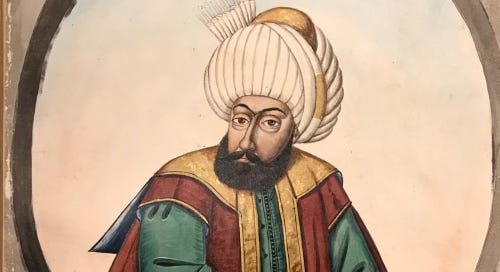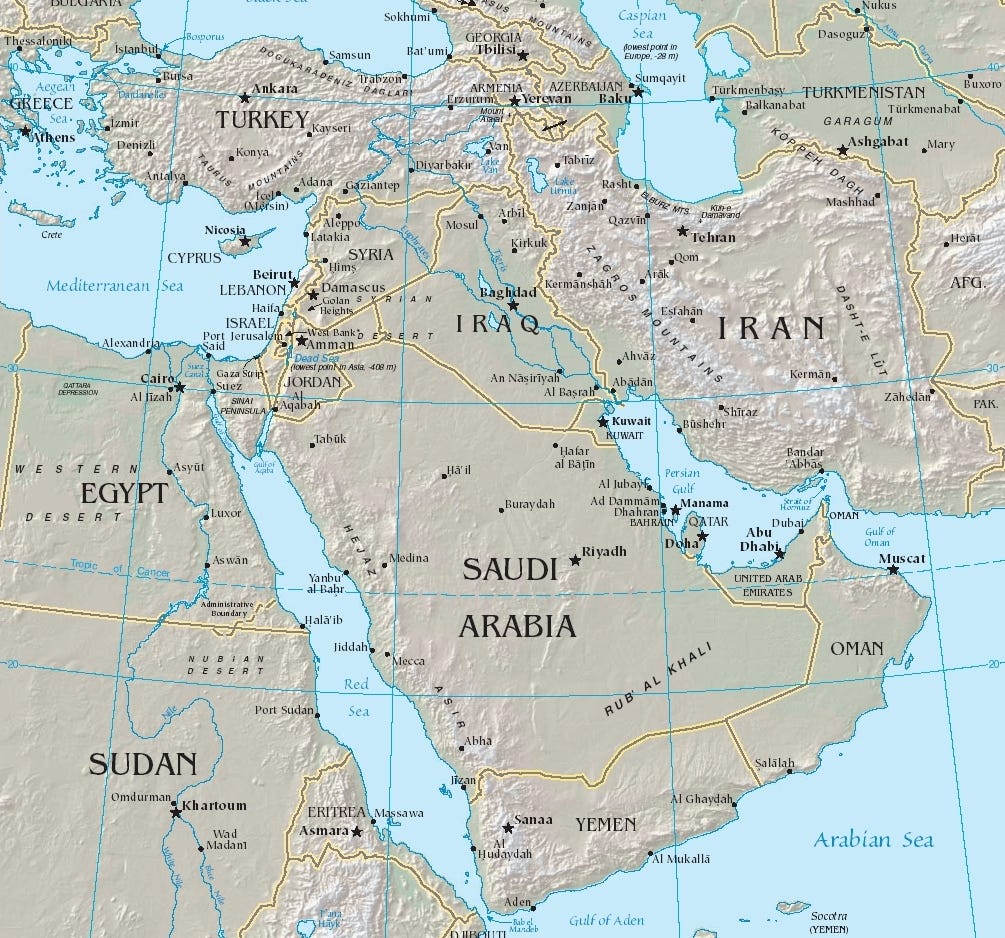I’m proud to say that the students who began studying the history of the Arab-Israeli conflict with me last October are now, officially, graduates of Middle East 101.
I’m very proud of them. They took it seriously; they worked diligently; and they have achieved the reward of hard study: For the rest of their lives, they will notice that reporting on this conflict is facile and error-prone, and it will annoy them no end. Congratulations!
The class, however, isn’t satisfied. Middle East 101 confined itself to the history of the Arab-Israeli conflict. After thinking it over, they concluded they’d now like to branch out and do a proper study of the whole Middle East. So that’s what we’ll be doing next.
Starting not this coming Sunday, but the Sunday following, July 21, at our usual time (4:30 pm in Paris), we’ll begin Middle East 201. We’ll be looking at the politics, international relations, and history of the whole region: the Arabian Peninsula, the Levant, Turkey, Egypt, Iran, and Iraq.
The class isn’t for complete beginners. But if you’ve been following along with the reading so far, or if you already have a reasonably good sense of the 20th century history of this region, you’re welcome to join us. The only requirement is that you do the assigned reading before class.
If you plan to join, let me know, so that I know how many of you to expect:
The first topic we’ll be studying, of course, is the history of the Ottoman Empire. I propose we take several weeks. It’s absurd to try to rush through the whole period from 1300–1923 in a week, or even two.
We’ll begin by reading Osman’s Dream: The History of the Ottoman Empire, by Caroline Finkle. To my surprise, it’s available online, in full. (We can thank the History 435 students at the Lahore College for Women for that.) I may assign a bit of supplementary reading as we progress.
I’ll send the chronology, study questions, and lectures for you to watch in the coming days, but I wanted you to have the reading assignment now so that you can get started.
For the coming discussion group—remember, not this coming Sunday, but the next—please read Chapters 1-4.
See you on the 21st!







https://aeon.co/essays/the-life-of-mishaqa-and-the-birth-of-arab-ottoman-modernity
Well, Dr. Berlinski, you've gone and done it again. I'm not going to be able to join your ME 201 course. One of the reasons I retired five years ago was so I would not have to get up at unreasonable hours like 0430. But I will be doing the readings and otherwise trying to follow along. ME 201 is where I would have started anyway. Dr. Finkel's introduction has already drawn me to the New Cambridge History of Islam https://archive.org/details/TheNewCambridgeHistoryOfIslamVolume1/The_New_Cambridge_History_of_Islam_Volume_1/mode/2up
and down the rabbit holes I go, trying to fill in the enormous gaps in my knowledge. Look forward to new recommendations.